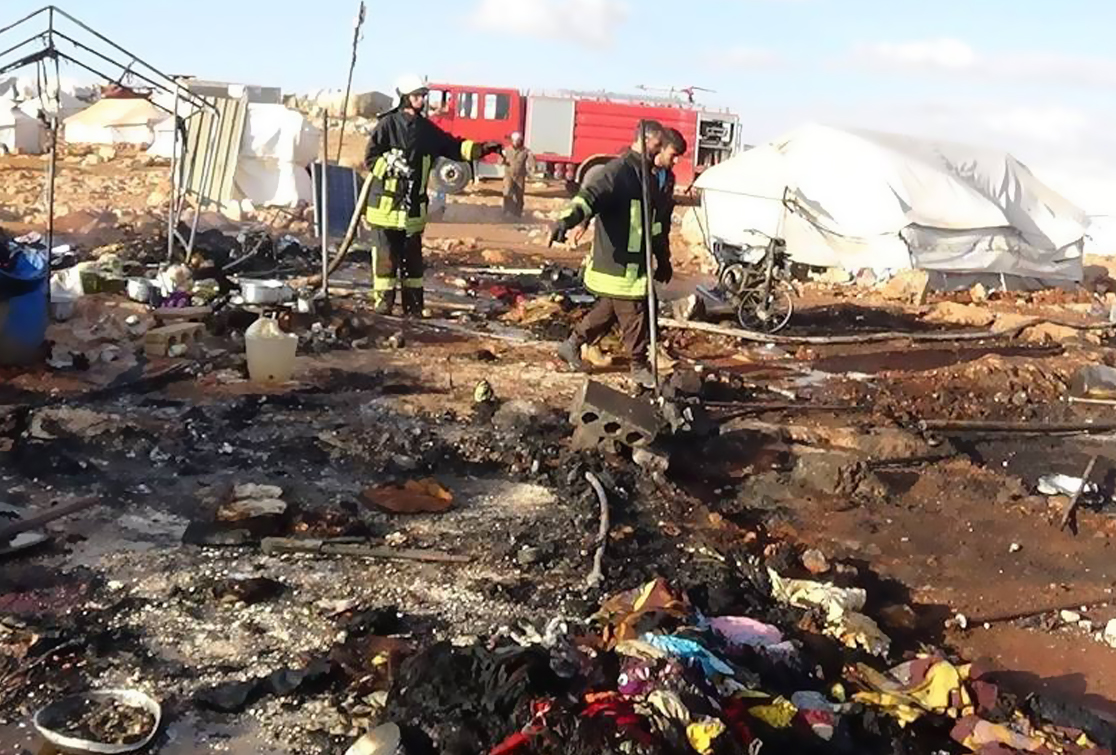51 of them were committed by Government Forces

SNHR published its own periodic report documenting the civilian vital facilities that were attacked by the parties of the conflict in Syria.
The report mentioned that the pace of the bombardment and the over flights by warplanes (Government and Russian), in parallel with the pace of the bombardment of civil vital facilities has decreased since the start of the application of the Agreement on Cessation of Hostilities till one day after the declaration of the Supreme Commission for negotiations to postpone its participation in the Geneva talks on 19 / April, where government forces have resumed dumping the explosive barrels on the areas that are not controlled by the Syrian regime to return to the pace of killings and attacks on vital civilian centers to what it was before the statement of the cessation of hostilities.
“Fadel Abdul Ghani”, the director of SNHR stated:
“Without a clear accountable mechanism for the perpetrators of the Cessation of Hostilities’ breaches; and as we haven’t heard any held investigation among hundreds of breaches that we documented; thus, the statement of the cessation of hostilities is threatened with collapse and there should be one side that holds responsibility for the consequences on regular basis.”
The report documented the outcome of attack incidents on the vital civilian facilities in May, where it scored not less than 92 reported attacks on vital civilian facilities distributed by the actor to 51 incidents by government forces, 20 by Russian forces, and 9 by ISIS and 8 by armed opposition factions. The report also noted 4 incidents by unidentified groups.
The repot segregated the attacked vital facilities in May, and they were distributed to 25 of infrastructure; 8 of Educational vital facilities; 20 places of worship; 26 of Medical facilities; 4 of cultural facilities; 5 of communal facilities; 3 of International Humanitarian Insignia; 1 of refugee camps.
SNHR highlights that the documented attacks against vital civilians’ facilities, was the minimum due to the many practical obstacles we run across during our work.
SNHR affirms, through its investigations, that there were no military points or presence in these places before or during the attacks. The government forces, and the crimes perpetrators, should justify their brutal attacks in front of the United Nations and the Security Council.
The report notes that according to the Humanitarian International Law, the purposed, indiscriminate, or disproportionate attacks are prohibited. Thus, the attacks done by the government forces at schools, hospitals, churches, and bakeries are an utter disregard for the minimum standards of international law and the UN Security Council Resolutions.
Also, the report states that the extremist Islamic groups and other armed groups, also the Russian forces and international coalition forces targeted a number of those facilities. The indiscriminate bombardment is a violation of the intentional humanitarian law and can be classified as war crimes.
The report recommended binding the Syrian regime to respect Resolution no. 2139 and at least condemn targeting the vital facilities that are necessary for all civilians. Also, to enforce a comprehensive arms embargo on the Syrian regime considering its horrible violations of the international laws and the Security Council resolutions.
Finally, the report recommended from the armed opposition factions’ supporting countries to stop supporting the factions who lack abiding by the international humanitarian law.


